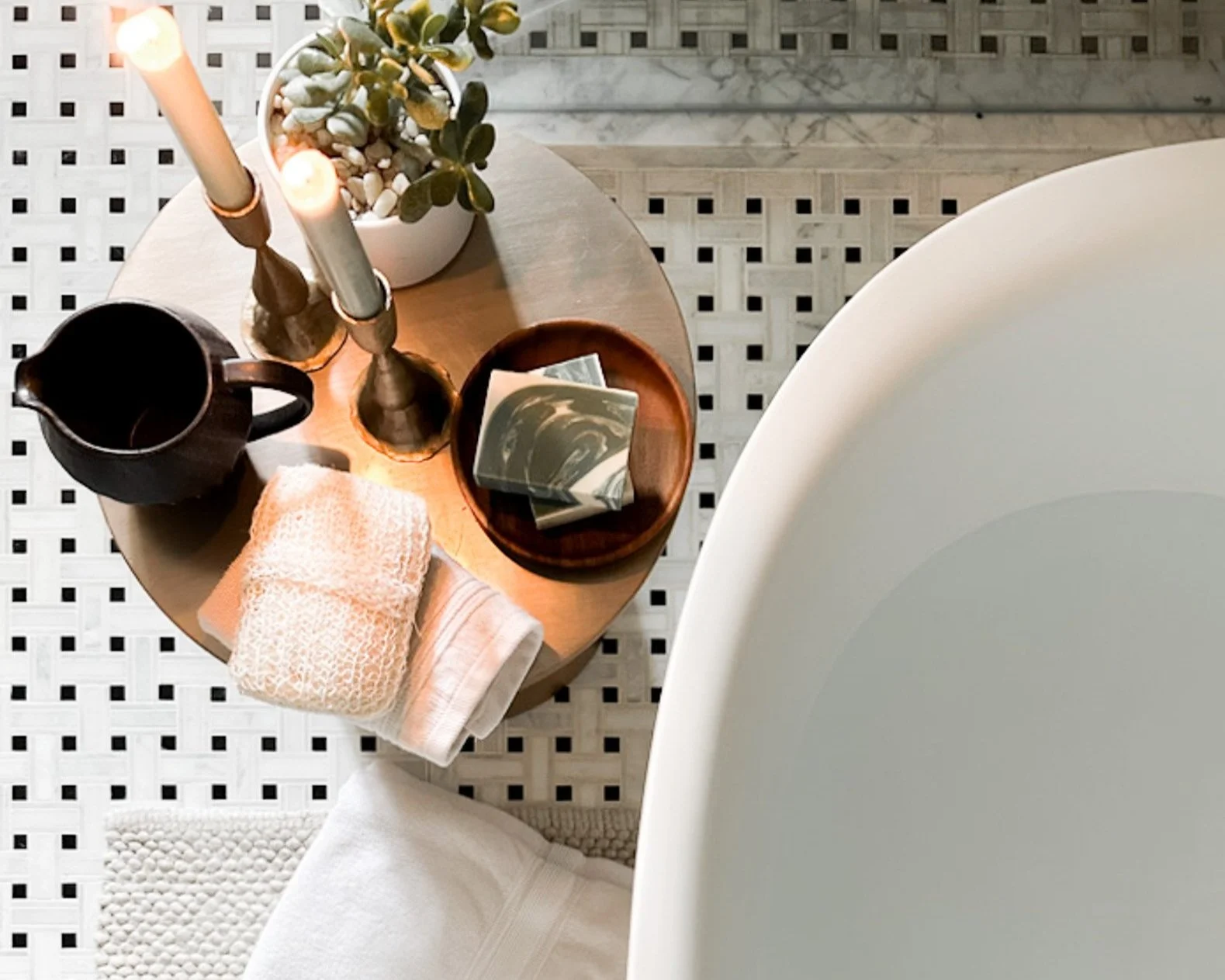3 Types of Lighting Every Home Should Have
In my opinion, lighting is one of THE most important selections when moving through the design process. Not only is it a highly functional aspect of the home, lighting can also bring big impact through its aesthetics, and design details. Light fixtures can make, or break a room. Purpose, scale, visual interest, wattage, height, and connection to the rest of the space, are all things to consider when selecting the right lighting for your space.
Lighting is one of my favourite aspects of design, and I love layering different types of fixtures. This approach helps bring personality, and different moods to a space depending on the experience you would like/ or need to have.
What does it mean to layer lighting?
Each type of lighting plays different roles in a space, yet they work well together when selected in such a way to compliment each other. The layers come by way of the type of lighting, but also the height at which they are hung or placed.
There are three basic types of lighting; ambient or general, task and accent. A fourth and unnecessary, but lovely addition is candlelight. A room may require three of the main types depending on the function of the space, however I highly recommend using at least two, even if one is a candle.
AMBIENT
Also referred to as general lighting, this is the primary, and base layer of lighting within a home. Most rooms will have some form of general lighting to simply light the space, most of which are installed in the ceiling. The wattage of each fixture should be considered in order to ensure the room is lit appropriately, especially if this is the only source of light.
The above living space includes ambient lighting in the overhead chandelier, accent lighting with the two table lamps, and candlelight on the coffee table. While all may not be on at the same time, having the ability to layer the lighting depending the mood you intend to create, offers flexibility in a space.
Note: a fireplace also offers a layer of light, and a glow within a room!
Examples of ambient lighting:
Natural light
General overhead lighting
Recessed pot lighting
Track lighting
Chandeliers, flush mount or ceiling fixtures
TIP: Ideally lighting should be selected prior to framing, and absolutely before drywall. This ensures the correct placement, weight considerations (if any), and a thoughtful approach to the design of your home. Whether wall outlets for table lamps, lighting within millwork, floor outlets, wall sconces etc., there’s no shortage of decisions to be made to maximize light, play with layers, and offer design details that really bring a space together.
TASK
As the name suggests, task lighting refers to a fixed source that provides additional light for a given task. Areas in a home where task lighting is needed include, however are not limited to, above a kitchen island, bathroom vanity lights, floor lamps for reading, and of course, and lighting for a work surface. Task lighting should be selected specifically for the space in which it will live, and the task it will service. Confirming adequate wattage, lumens, and colour temperature are important details to ensure the required task can be completed with ease.
The above image includes wall sconces mounted either side of a built-in desk area to light the surface when it’s homework time. The right lighting helps our eyes focus, and not be strained while we work.
Examples of task lighting:
Table lamps
Pendant lights
Vanity lights
Floor lamps
Desk lamps
Under cabinet or integrated lighting
TIP: Having a designer on board your project will ensure the above points are all considered together for aesthetics, cohesiveness, and function, not only alongside other lighting selections, but all other finish and materials required for the project as well.
ACCENT
Accent lighting works to highlight a specific object or area, naturally directing the eye towards a focal point such as artwork, a bookshelf or in this case a picture light hangs above the front entry closet doors, offering interest as well as function. This space also includes a set of table lamps on the console, and wall sconces adjacent. Wattage is not as much of a concern when choosing accent lighting, rather the overall aesthetic, and scale would override the amount of light emitted.
Whether in a hallway, front entry, or simply an added layer in a living room, accent lighting provides a glow, and soft layer of lighting within a space.
Examples of accent lighting:
Picture lights
Table lamps
Niche lighting
Wall sconces
TIP: Dimmers are a must on virtually every fixture. This allows you to control the amount of light you require from each fixture, and also contributes to the layering opportunities.
CANDLELIGHT
The fourth, and bonus option is certainly not a necessity in space, but there’s simply nothing like candlelight! It offers a warm glow, creates an experience, and instantly elevates the mood in a room.
Looking for a lovely addition to your candle collection? Meet CITRINE, a scented candle we developed alongside milk jar candle co., and the latest addition to our shop. It’s a feast for the senses, stimulating sight, sound, and of course smell. It has been described as beautiful, authentic and subtle, words we are humbled, and ecstatic to hear.
Lighting is one of our favourite design details of a space, and should be thoughtfully considered early on in the design process in order to fully experience the best possible outcome.















